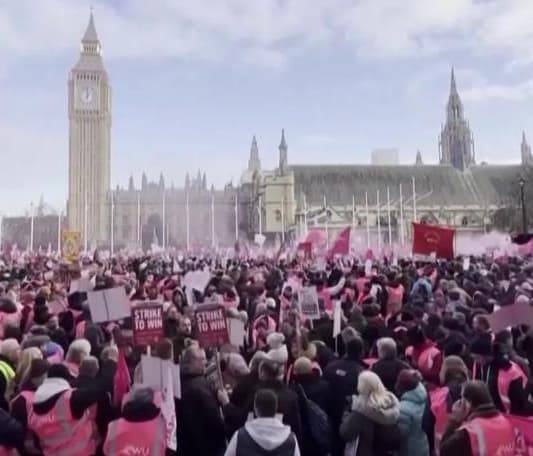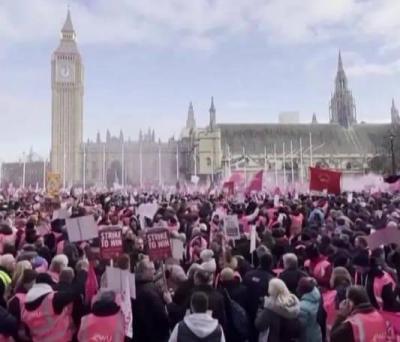Up to half a million Britons, including teachers, public sector workers, train drivers, and university lecturers, are set to participate in what is deemed the largest coordinated strike in decades. The government states it will cause widespread disruption. The strike will lead to school closures and military preparedness to assist at the borders, and train services will be halted across most of the country. Union leaders estimate that as many as 500,000 will take part, the highest participation in at least a decade.
Anti-strike law protests are planned against a new proposed legislation aimed at restricting strikes in certain sectors, a proposal that opponents say will further strain relations between unions and employees on one side and businesses and government on the other. Paul Nowak, the General Secretary of the Trade Union Congress, which represents several unions, stated: "After years of severe wage declines, nurses, teachers, and millions of other public sector workers have seen their living standards deteriorate and are bracing for more misery due to wages." He added, "Instead of planning new ways to attack the right to strike, ministers should raise wages across economic sectors, starting with a proper pay rise for public sector workers."
The government announced it will take actions to "mitigate" the effects of the strikes, but these measures will have significant impact. The UK has witnessed a wave of strikes from workers in health and transport sectors to those in Amazon warehouses and Royal Mail staff, coinciding with inflation rates exceeding ten percent, the highest in four decades.
Strikers are demanding wage increases above inflation rates to cover rising costs of food and energy, which they say add to their severe pressures and feelings of underappreciation, as current wages do not meet their needs. Approximately 300,000 teachers and nearly 100,000 government employees from over 120 government departments, along with tens of thousands of university lecturers and railway workers, will participate in the strike.




